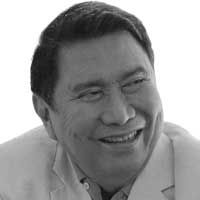Abusers and oppressors

What’s wrong with the Regional Internal Affairs Service (RIAS) of Mimaropa?
Mimaropa stands for Mindoro, Marinduque, Romblon and Palawan.
The Mimaropa RIAS has recommended the one-rank demotion of a policeman, Cpl. Anthony Jay Jarabe Custodio, for fatally shooting a farmer in the back.
The victim was Alberto delos Reyes, who was cutting into pieces coconut trees that were felled by Typhoon Quinta in October 2020.
The crime happened in Marinduque on July 28, 2021.
Custodio’s motive for killing Delos Reyes was that the latter was cutting felled coconut trees in another person’s farm.
The policeman shot the farmer five times in front of the latter’s 10-year-old son.
Shooting another person in the back is treachery and constitutes murder.
Despite the apparently grave offense, Custodio got off with the light punishment of one-rank demotion. That means he’s back to the rank of patrolman.
The Marinduque Provincial Prosecutor’s Office, however, has resolved that Custodio committed murder and filed it in court.
Whoever handled the investigation at Mimaropa RIAS was probably paid off by Custodio or was ignorant of what constitutes murder.
Meting out light punishment on Custodio was like condoning his criminal act.
The New People’s Army (NPA) in the Mimaropa region need not recruit members or sympathizers; the RIAS is doing it for them.
* * *
I remember that one day during the martial law years, I was called to the headquarters of the then Presidential Security Command, now called the Presidential Security Group or PSG.
The PSC or PSG camp is along the banks of the Pasig River across Malacañang.
I was told that Gen. Fabian Ver, PSC commander and concurrent Chief of Staff of the Armed Forces, wanted to talk to me.
Naturally, I was scared when I went to the PSC headquarters to answer Ver’s “invitation.”
I had been very critical in my column at the Bulletin of the abuses committed by members of the military and the Philippine Constabulary-Integrated National Police (PC-INP). The PC-INP was the forerunner of the Philippine National Police (PNP).
Among my favorite whipping boys in that column were soldiers from the PC Brigade, composed of misfits and abusive personnel.
In every place that members of the PC Brigade would patrol, its personnel would slaughter pigs or cows without the consent of their owners. They also reportedly harassed barrio lasses.
The PC Brigade was composed of PC Battalions. These battalions were called “Peste Battalion” by rural folks.
I thought to myself while I waited for General Ver in his office, “This is it, Ramon! You’re done for. Either you get jailed for attacking the military or warned about further writing items critical of the military in your column.”
I was wrong in my thinking. Ver was friendly and courteous.
Ver inquired about my father, Ramon Sr., who was Ver’s contemporary but who retired much earlier than Ver.
And then he congratulated me! For what, I asked.
“For exposing the abuses of soldiers in the field,” I remember Ver telling me.
Ver said I was helping the military higher-ups know the real situation in the field by exposing the abuses committed by soldiers and policemen.
The general said that most of the reports of abuses gathered by higher headquarters had been toned down.
For example, a drunken soldier would shoot down an innocent civilian whose only fault was that they crossed paths.
The report to higher headquarters (Camp Aguinaldo or Camp Crame) would be that the victim was an NPA member. In short, there would be a cover-up.
“You’re helping us separate the chaff from the grain because of your network of sources in the field,” Ver said.
“Mr. Tulfo, please continue your crusade against abuses by soldiers and policemen,” the PSC commander and AFP chief of staff said.
* * *
Believe it or not, martial law authorities left me alone while I flogged abusive soldiers and policemen in my Manila Bulletin column.
Of course, there were threats to my life, obviously coming from those who were disgraced in that column, but the martial law government was lenient towards me. That is, for as long as my reports were supported by facts.
Ironically, I suffered under the supposedly democratic government of Corazon C. Aquino and never from the government of Ferdinand Marcos.
A powerful husband-and-wife tandem asked that my column be removed because I was attacking some abusive members of the new administration. That was the reason I left the Bulletin and went to the Inquirer.
At the Inquirer, a brigadier general ordered some of his men in a special unit at the now defunct Constabulary Highway Patrol Group (CHPG) to rub me out.
I incurred the general’s ire for exposing the unholy alliance between some CHPG personnel and car thieves (carnappers).
“If he has a companion, he or she should be included so there will be no witnesses. Let’s make it appear that we mistook him for a carnapper,” said the general who was quoted by one of those who received the order.
Luckily, my source in the CHPG forewarned me so I was able to take evasive maneuvers.
* * *
The so-called People Power revolution will again be commemorated next month.
I covered that event from start to finish, from Feb. 22 to 25, 1986.
While the crowd became boisterous with the departure of Marcos and his family, my friend and colleague, the late Teddy Africa, made a prophetic statement I will never forget.
Africa was covering the momentous event for the Times Journal while I covered it for the Bulletin.
“Mon, the oppressed of yesterday will become our oppressors tomorrow,” Teddy said.
- Latest
- Trending





























